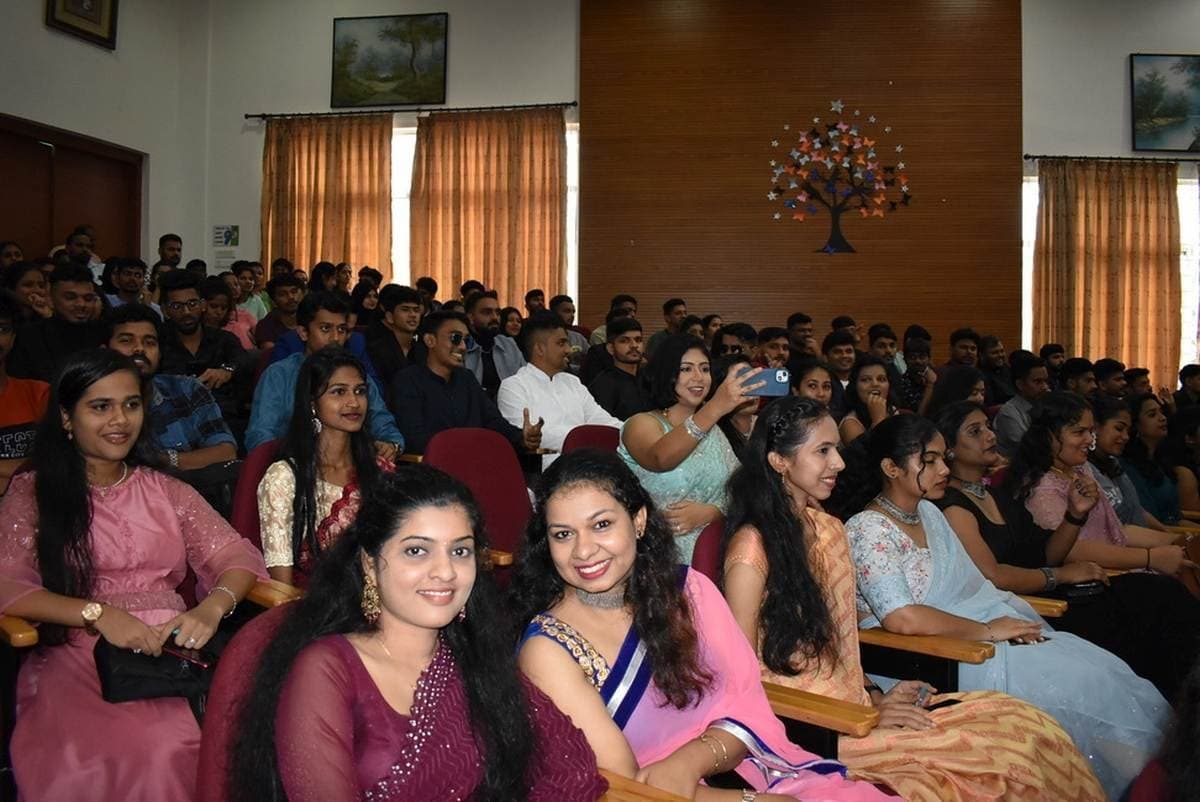
MBA
The inception and establishment of AIMIT has reflected the spirit and conviction of enacting innovative teaching methods. It is unique both in terms of infrastructure and faculty members. This independent campus empowers the students with essential skills to succeed in a globally competitive and challenging corporate environment. From imparting current and modern pedagogic practices, to facilitating world-class infrastructure, from building corporate citizens in an ever changing corporate world to imparting ethical values of hard work and commitment, our success is reflected by the success of our students. The Department of MBA provides opportunities for students to find fulfillment in their life and to develop their personality.
The MBA program is a choice-based credit program. The curriculum offered includes:
a) Problem-centric approach rather than theory focused approach;
b) Encouraging dynamic, critical and analytical thinking in every course rather than static, descriptive methodologies;
c) Advocating integrated business management in the place of the traditional “silos” of MBA learning such as Accounting, Finance, Production, HR, Econometrics, Operations, Business Analytics and Marketing;
d) Empowering students with Corporate Ethics and Governance.
Vision
To foster excellence in leadership and management, inculcating an inbuilt spirit of Magis, sustainable entrepreneurship, and innovation for business, government and society.
Mission
- Offering programmes with intellectual depth, abundant resources and individual attention to develop budding managers who are socially responsible and environmentally conscious.
- Creating innovative global leaders rooted in Jesuit ethos and Indian societal values.
- Transforming individuals to be ethically sound intrapreneurs and entrepreneurs.
MBA Rankings of AIMIT
- GHRDC 2019 – India’s top emerging B Schools of Excellence: Rank 1
- Outlook 2019 – Most Promising B School: Overall Ranking 14
Choice - Based Credit System
Semesters I & II offer hardcore subjects that comprise of fundamentals of management. 4 out of 6 subjects. The softcore subjects comprise of areas of specialization. 2 out of 4 subjects.
Specializations offered in Semesters III & IV
- Finance
- Human Resource
- Marketing
- Operations Management
- Business Analytics
New course introduced – Operations Management
- Facility location and process design
- Inventory and warehouse management
- Materials & procurement management
- Service operations management
- Operations analytics
- Purchase management
- Strategic operations management
- Total quality management
OUTCOME BASED EDUCATION
Programme Education Objectives (PEOs)
PEO1: To nurture innovative and ethical business leaders to navigate the dynamic global environment
PEO2: To develop a culture of sustainable entrepreneurship to promote empowerment and inclusion
PEO3: To impart holistic and transformative management education to create intrinsically motivated, ethically sound, morally upright, socially conscious and competent professionals.
Programme Outcomes (POs)
PO1: Business Acumen: To apply acquired KSA (Knowledge, Skills and Abilities) in the domain of management sciences to detect, diagnose, predict and resolve Business problems.
PO2: Analytical and critical thinking: To adopt analytical and critical thinking for scenario analysis based decision-making.
PO3: Ethical leadership: To exhibit ethical behaviour in managerial choices as responsible corporate citizens.
PO4: Team management: To lead diverse cross-functional teams in a globalized organizational environment to optimize the welfare of stakeholders.
PO5: Ideation: To be able to generate, develop and communicate new ideas.
PO6: Catalytic Innovation: To approach social problems in an innovative way to create viable, feasible, sustainable solutions.
PO7: Ecological sustainability: To spear head environmentally responsible decisions that cater to the needs of the present without compromising the future.
PO8: Developmental alliances: To develop an association at the individual and organizational level for mutual attainment of objectives and goals.
PO9: Continual learning: To adopt experiential learning for reflection on real world situations and ensure life-long learning.
PO10: Value based education: To internalise values that promote effective learning and reinforce continuous improvement of the personal, social, moral, and economic wellbeing.
PO11: Professional development: To refine the industry readiness and agility of business professionals
PO12: Community Spirit: To engage in service oriented activities so as to empowering and benefiting social stakeholders.
Programme Specific Outcomes (PSOs)
A. ECONOMICS & FINANCE:
PSO1: To identify, evaluate and select the available investment avenues that enhance wealth maximization.
PSO2: To critically analyze sources of capital which lead to optimal capital structure decisions.
PSO3: To apply the knowledge of accounting, financial analytical tools and costing techniques to crystallize decision making strategies for global business.
PSO4: To apply the fundamentals of finance and demonstrate an ability to assess the market value of corporate securities and to manage complex short term finance decisions.
PSO5: To integrate the areas of business activity to solve the complex unstructured business problems.
B.BUSINESS ANALYTICS:
PSO1: To select and apply advanced data analytical techniques and tools for data driven decision-making.
PSO2: To fashion professionals to have an innovator’s attitude to technology which fosters technical adaptability in the dynamic business environment.
PSO3: To enhance analytical capability and process the information to produce result oriented data sets for effective decision making.
PSO4: To mature as an independent data scientist with robust cross-domain skills to manage analytics driven organization.
PSO5: To generate meaningful insights across diverse functional domains to develop innovative data analytics solutions.
C.MARKETING
PSO1: To identify key principles in marketing practice in today’s new , more connected , more engaging marketing world going beyond traditional tried-and –true marketing concepts
PSO2: To incorporate creating and capturing customer value and engagement in the digital and social age as a fundamental bulwark of marketing
PSO3: To apply traditional and trending concepts like customer engagement marketing, omni-channel marketing and retailing , customer cocreation , marketing content creation and native advertising and many more to solve complex marketing problems.
PSO4: To facilitate the development of the customer engagement framework –creating direct and continuous customer involvement in shaping brands, brand conversations, brand experiences and brand communities
PSO5: To demonstrate critical-thinking and problem solving skills in today’s complex global environment via application of “marketing accountability and “sustainable marketing” skills
D.HUMAN RESOURCE MANAGEMENT
PSO1: To apply the fundamental functions of Human Resource Management in contrast with the contemporary dynamic business environment.
PSO2: To design selection process based on assessment of manpower planning and formulate a suitable compensation package to keep the human resource extrinsically driven.
PSO3: To develop, implement and evaluate employee orientation, training and development programmes to enhance productivity and facilitate professional advancement in the organization.
PSO4: To recognize and comply with the policies and practices governing labour markets in India and abroad.
PSO5: To foster distinctive practices that are designed to attract and retain the most talented human capital of the organization.
News
Junior MBA students give cultural farewell to seniors
First year MBA students hosted a cultural farewell programme for their graduating seniors with the theme ‘The Oscars’ on July 8....

Industry Driven Courses
- Creativity and Innovation Management
- Business Turnaround Management
- Decision Making Model
- Management Data Analytics
- Data Driven Marketing
- People Analytics
- Business Econometrics
- Financial Modeling
Add on Courses
- Gavel Club
- Excel Lab
- SPSS Lab
- Management Lab
- Personal Financial Planning
- Service Learning Project
- Entrepreneurship Development Programmes in collaboration with Santa Clara, USA
Pedagogy
- Management Labs
- Mini projects
- Flipped Classroom
- Problem Centric Approach
- Experiential Learning
- Brand Journal
- Mock trading
- Case Studies
- E – lectures
- Webinars
- Virtual learning
- Innovative Industry Interaction
- Summer Internship Projects [SIP]
- Pan India SIP
- Global Industry Academia Interaction
- Business Consultancy Projects
- Innovative Industrial Consultancy
- Team Projects
- Entrepreneurship
- Critical Thinking
- Service Consultancy Project
Initiatives for aligning Management Education with the business needs of today’s global market
- Board of studies include representatives from the academia, industry, alumni and international institutions
- Updated market driven curriculum
- Summer Internships
- Problem centric research
- Faculty exchange programmes
- Latest E – books and databases
- Research based pedagogy
- Service learning project
Curriculum
AIMIT offers a choice-based credit program. The curriculum offered includes: a) Problem-centric approach rather than theory focused approach; b) Encouraging dynamic, critical and analytical thinking in every course rather than static, descriptive methodologies; c) Advocating integrated business management in the place of the traditional “silos” of MBA learning such as Accounting, Finance, Production, HR, Econometrics and Business Analytics and Marketing; d) Empowering students with Corporate Ethics.
Internships and Placements
All students are required to undertake a challenging summer internship project of 8 weeks duration and a Service Learning Project (SLP) during the fourth semester. We strive for a 100% placement for our students in reputed organisations such as Ernst & Young, Grant Thornton, KPMG, Pwc, South Indian Bank, MRF, VKC Group, Future Group, Ramco Cements, Everest Industries, Berger paints, Asian Paints, Godrej & Boyce, Decathlon India Pvt ltd, ICICI BANK, Careernet, Infosys, ICICI Securities, HDFC asset management, HSBC, Adsyndicate, KREATIO software, Wenger & Watson, Future group, Allegis group.
Management Development Programmes
AIMIT has successfully conducted many Management Development Programmes (MDP) since its inception. The new MDP Centre with residential facilities for the participants was inaugurated in Sept 2017 and has been offering many MDPs and FDPs. St Aloysius College soon plans to have Twinning Programmes with some of the leading universities in the US and Canada. University of San Francisco, California, University of Waterloo, Canada, and Boston College, Boston have already come forward to draw up an MOU with St Aloysius College. We also have plans to send our MBA students to universities in US and Thailand on completion of the first year to gain international academic exposure.
Student Enrichment Activities
- INSIGNIA – Annual inter- collegiate national fest
- Pragati – A Biennial one day symposium
- Manasamanthana – National level inter- collegiate paper presentation competition
- INCEPTION –Undergraduate Fest
MANAGEMENT STAFF
STAFF
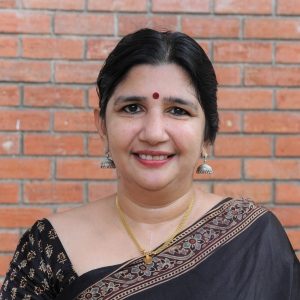
Dr Rajani Suresh
Dean (Academics and Research)
MBA (HR), LLM, NET, PhD

Dr Rowena Wright
Associate Professor
M. Com, M. Phil, Ph. D, SLET
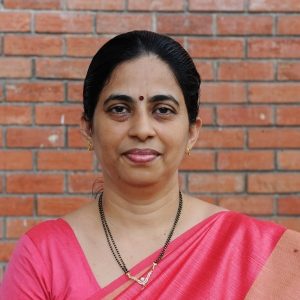
Dr Beena Dias
Associate Professor
M.Com, PGDHRM, Ph. D

Dr Dhananjaya K
Associate Professor
M.A. (Eco), Ph.D.(Eco), NET (Eco), NET (Management), NET(HRM), NET (Social Work), MSW, MBA, PGDIM, PGDHRM

Dr Sumitha P. V
Assistant Professor
MSc (Statistics), Ph.D

Dr Justin James
Assistant Professor
MBA, MSc (Chemistry), MSc (Psychology), NET(Management), Ph.D

Dr Swapna Rose
Assistant Professor
MBA, NET, Ph.D
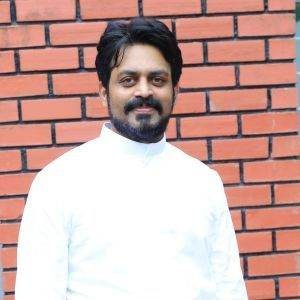
Dr (Fr) Kiran Cotha SJ
Assistant Professor
MA (Economics), K-SET, Ph.D
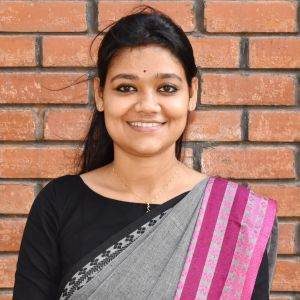
Dr Poulami Saha
Assistant Professor
B.Tech, MBA, Ph.D

Dr Annette Sonia Maben
Assistant Professor
MBA, M.Com, Ph.D

Dr Steevan D Souza N
Assistant Professor
MBA, MSW, MA (Economics), PGDHRM, PGDIM, PGDGC, PGDCSR

Mrs Divya Pereira
Assistant Professor
MBA, K-SET, Ph.D (Pursuing)

Mr Ravi Kudtarkar
Assistant Professor
MBA(Marketing), KSET, PhD (Pursuing)

Mr Vinay Krishna
Assistant Professor
MBA (Finance), Net (Management), PhD (Pursuing)

Mrs Harinakshi
Senior Lecturer
MCom, PGDCA, Ph.D (Pursuing)

Ms Gowthami
Assistant Professor
M.Com, NET, K-SET

Mr Pramodh D’Souza
Lecturer
MBA (Finance)
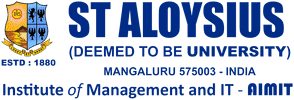
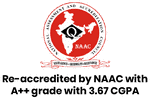
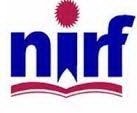 Ranked 58th
Ranked 58th